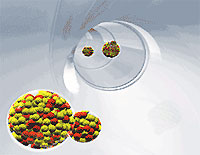Russian Duma Gives Green Light to Science Academy Reform

(RIA Novosti – MOSCOW, July 3, 2013) A government-backed bill on a sweeping overhaul of Russia’s Academy of Sciences was passed in the first reading by the lower house of the federal parliament on Wednesday, despite fierce opposition from the academy’s leadership.
The bill proposes handing control over the academy’s vast assets and 434 scholarly institutes to a new state agency. Under this bill, the academy would also be merged with two other state academies, for agriculture and medicine.
The lower house of Russia’s parliament, the State Duma, will hold the second reading on Friday, but the third and final one will be postponed until fall to allow time for revisions, the academy’s president-elect Vladimir Fortov said Wednesday.
Fortov met with President Vladimir Putin ahead of the vote, asking him to delay the reform for a year.
“Some things in it will just kill off our science,” Fortov said of the bill at his meeting with Putin, which was broadcast on Russian TV.
But Putin refused to postpone the bill, instead proposing to revise it during its parliamentary review.
“Sometimes it’s better to make a decision and [then] improve it than to tread water,” Putin said.
“I examined [the arguments of] both the reform’s critics and ardent proponents. Both sides have things worth supporting and debatable proposals,” he added.
Putin suggested that Fortov heads the new state agency that would, if the bill is passed, manage the academy’s affairs an offer Fortov said he would consider. Putin also proposed creating a council of prominent scientists that would split managerial duties with the agency.
The academy’s presidium criticized the reform earlier this week, saying it would cripple Russian science by handing control over it to government bureaucrats with no scholarly experience whose chief interest is in seizing the academy’s assets. The academy’s union also threatened a nationwide strike.
The government has been accusing the academy of “ineffectiveness” for years, with this criticism echoed by some prominent scientists, most notably Russian-born physicist and Nobel Prize laureate Andre Geim. The academy has blamed its problems on poor funding.
Most of Russia’s scholarly research takes place in academy-affiliated institutions, which have a combined staff of 48,000 researchers.
